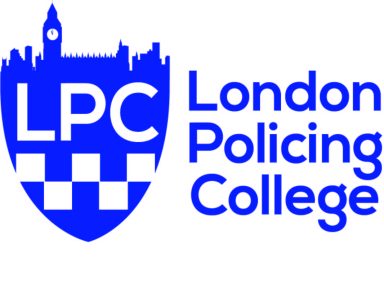Policing in the 21st Century – Renewing Confidence in Public Protection
Below are some concepts from our 4th International Police Education Conference.
Our conference involved more than 1,000 delegates form over 30 countries including senior police leaders, academics, industry partners and NGOs. Key themes for policing are reducing trust and confidence in the following areas driven by changing context, public priorities and accountability networks. They include specifically:
- Police response to Violence Against Women and Girls – Domestic and intrafamilial violence, child abuse and exploitation, rape and serious sexual assaults.
- Changes in technology, specifically digital technologies but also encompassing physical forensics which are requiring new skills to utilise and adding costs.
- New forms of public protest – exacerbated by greater accountability form digital recording devices etc.
Within these three broad categories we identified several key issues for police education.
- Increased Adoption of Predictive Policing: The use of predictive analytics and algorithms to identify crime patterns and allocate resources efficiently is expected to become more widespread. Law enforcement agencies may further refine and enhance their predictive policing capabilities, leveraging advancements in AI, machine learning, and data analytics.
- Emphasis on Data-Driven Decision Making: Policing strategies and resource allocation will increasingly rely on data-driven insights. Agencies will invest in robust data collection and analysis systems to enhance situational awareness, identify emerging trends, and measure the effectiveness of crime prevention initiatives.
- Enhanced Digital Forensics and Cybercrime Investigation: As cybercrime continues to rise, law enforcement agencies will focus on strengthening their digital forensics capabilities to investigate and prosecute cybercriminals effectively. This includes advancements in forensic tools, techniques, and collaboration with cybersecurity experts.
- Integration of Surveillance Technologies: Policing agencies may expand their use of surveillance technologies such as CCTV cameras, facial recognition systems, and license plate recognition. Striking a balance between public safety and privacy concerns will be a significant challenge, necessitating appropriate legal and ethical frameworks.
- Collaborative Partnerships with Technology Companies: Law enforcement agencies are likely to establish closer partnerships with technology companies to develop customized solutions, leverage expertise, and share data for crime prevention. Collaborations could involve areas such as AI, big data analytics, and video analytics.
- Emphasis on Community Policing and Trust Building: Efforts to build and maintain community trust will remain a priority. Police agencies will increasingly focus on community engagement, establishing positive relationships, and promoting transparency in their operations. Technology may be used to facilitate community involvement in crime prevention efforts.
- Continued Focus on Officer Training and Digital Skills: Training programs for police officers will evolve to equip them with the necessary skills and knowledge in digital technologies, cybersecurity, data analysis, and predictive policing. Continuous professional development will be vital to ensure officers stay updated with emerging trends.
- Ethical Use of Technologies and Accountability: Law enforcement agencies will place increased emphasis on the ethical use of emerging technologies, addressing concerns such as bias, privacy, and potential misuse. Clear policies, guidelines, and accountability mechanisms will be essential to maintain public trust and prevent abuses.
- Enhanced Emergency Response Capabilities: Policing agencies may explore technologies such as real-time crime mapping, AI-assisted dispatch systems, and improved communication tools to enhance emergency response capabilities. Integration with other emergency services and leveraging smart city infrastructure may also be a focus.
- Addressing Social and Community Challenges: Policing agencies will likely continue to address societal challenges beyond traditional law enforcement, such as mental health crises, domestic violence, and social inequalities. Collaborative partnerships with social service organizations and proactive community engagement will be vital in this regard.
Our conference this year will be taking these issues further. Click here for details of our 2023 conference.

Policing in the 21st Century – Renewing Confidence in Public Protection
Brief and Approach
Policing is by its very nature complex and challenging and never more so than now. Rapid technological developments, climate change, international conflict and the global pandemic are just three areas which have contributed to a societal shift which urgently require us to examine our need for better, more effective public protection by our policing services.
Whilst the majority of police do an outstanding job in demanding situations, these challenges have at times been epitomised through lapses in professionalism, failure to provide services to the right standards and concerns about the service provided to specific communities.
The model on which British policing is founded – that of public confidence and consent has been severely tested in recent times. The London Policing College 4th International Policing Conference will bring together leading academics and police practitioners from around the world to consider key issues from a global perspective. We held 7 workshops during July and August. The aim of these workshops was to consider how to develop the capability of the policing system within existing structures, technology, and resources to fundamentally improve performance in protective services.
- Violence Against Women and Girls (VAWG)
- Cyber Crime and Fraud
- Policing Public Protest
- Cyber Policing: Challenges and Way Forward. An international perspective
- Policing Public Protest in Germany
- The Mission to End Violence Against Women and Girls. An international perspective. Part 1
- The Mission to End Violence Against Women and Girls. An international perspective. Part 2
For each of these areas we will discuss solutions to improve:
- Trust and Confidence
- Skills and technology
- Learning and Development
- Wellbeing
- Leadership (supervision)
Our discussions will be informed by:
- Police Foundation Strategic Review of Policing in England and Wales
- College of Policing Future Operating Environment of Policing – key trends to 2040
- UK National Police Chiefs Councils 2021-2025 Strategic Vision
- Learning from international perspectives facilitated by the International Police Association
Together, we searched for insights and solutions to develop and enhance police effectiveness and accountability. Output from the workshops was presented for debate at the conference in September.
Our conference was hosted by Amazon and held from 13th-15th September at their headquarters in London.
The Workshops
A total of seven workshops were held and below are links to the video recordings of the workshops
The PowerPoint slides and further details are available on request.
The outcome from the workshops was used to frame the presentations and conference discussions for the main event.
In total more than 1,000 delegates took part in the events from across the globe

Violence against women and girls
Facilitated by Parm Sandhu the panel included:
Professor Betsy Stenko OBE
Lizzie Peters (Mayor of London's Police and Crime Office)
Polly Harrar (CEO Sharan Project)
roIt considered learning form Operation Bluestone Soteria and the NPCC VAWG action plan
Cybercrime and Fraud
Faclitated by Stuart Hyde the panel included Antony Walker (Deputy CEO, TechUK)
Pete Williams (Senior Consultant in Discovery & Disclosure CCL Solutions Group)
Gary Hibberd (Cybersecurity and Data Protection specialist)
Patrick Rappo (Fraud Advisory Panel)
Policing Public Protest
Facilitated by Roger Gomm QPM the panel included:
Chief Constable BJ Harrington (NPPC lead for protest)
Bob Broadhurst OBE QPM
Professor Colin Rogers
Chief Superintendent Claire Clark (MPS)
We need your consent to load the translations
We use a third-party service to translate the website content that may collect data about your activity. Please review the details in the privacy policy and accept the service to view the translations.

